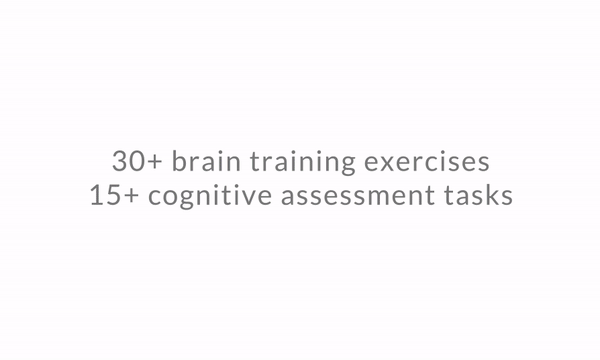
Cognitive Psychology and Legal Decision-Making
Cognitive Psychology and Legal Decision-Making. How is the legal profession changing? What cognitive challenges should modern lawyers meet? How can cognitive psychology help to improve legal decision making? All of these aspects are covered below. The relevance of the study is extremely high because, so far, there are very few that address legal decision making from the cognitive psychology perspective.

Modern lawyers have to work on their cognitive skills to improve legal decision making.
Nowadays, many jobs are facing major changes and legal jobs are no exception. The market demands from lawyers more cognitive abilities compared to the times before the widespread use of computers. With the help of modern search engines, information is becoming more and more available. So, people find answers to most of their legal questions themselves and ask lawyers for help only on the particularly difficult cases.
Analyzing a case is complicated given the number of individual circumstances, it is not an easy task. Especially, when the decisions need to be made at very short notice. Clients usually pay for the number of hours the lawyers have been working on their case. Both to save money and because some business decisions need to be made urgently, the clients prefer to get legal advice as soon as possible. They believe that lawyers can provide the available information in the first meeting and deem it “good enough.”
Perhaps, modern lawyers desperately want to satisfy their clients’ requests. They try to be always available on websites or by cell phones and ready to give online-advice.
Unfortunately, people’s cognitive abilities impose limits on how fast decisions of high quality can be made. As a result, modern lawyers tend to be in over their head, not taking into account their cognitive abilities.
The process of legal decision making is supposed to be impartial and objective, but in practice, it is not always the case. It is often influenced by subjective judgments resulting from systematic errors in our thinking, known as cognitive biases. All participants of the legal decision-making process can suffer from such cognitive biases. A client, for example, may incorrectly convey the circumstances of the case, on the basis of which the lawyer has to make a legal decision. Another example is when a client overestimates or underestimates the consequences of the legal decision and, hence, forces the lawyer to make a biased decision. Lawyers are also human beings and they are vulnerable to cognitive biases, which can sometimes lead to choosing the wrong strategy and, as a result, losing the case.
Robot processes and AI are gaining momentum. So, there is a possibility that lawyers will be replaced by unbiased artificial intelligence, which can make quality decisions much quicker than human lawyers and identify clients’ biases.
To summarize, there are two challenges the lawyers should accept:
- Challenge 1. Modern lawyers have to make quality legal decisions within short time limits.
- Challenge 2. Lawyers have to eliminate cognitive biases (both clients’ and their own) in order to improve legal decision making.
Cognitive Psychology and Legal Decision-Making- Challenge 1
To understand cognitive psychology and legal decision-making we need to know the basics of the decision-making process, in particular, the dual-process theory.
The dual-process theory was developed by several different scientists, including Keith Stanovich, Richard West, and the Noble Prize winner Daniel Kahneman. According to their research, our thinking process is an interplay between two systems, called System 1 and System 2.
System 1 is responsible for quick, almost subconscious decisions. It can be thought of as an automatic brain mode. We use System 1 when we perform simple tasks, such as driving a car on an empty road or inferring a person’s mood from their facial expression.
System 2 is responsible for conscious decisions. It is a slow, thoughtful and thorough process. We use System 2 when System 1 fails to produce quick and accurate results. For example, when we face a non-trivial problem. Nevertheless, System 2 is a “lazy” system, which requires time to turn on and some additional time for the analysis.
When we need to make a quick decision, we are most likely to use System 1. This system has helped us survive as a species: it helps us in emergency situations to make quick decisions.
The modern world requires lawyers to be good System 1 decision-makers without compromising the quality of legal advice. However, the limits of our thinking do not allow us to make decisions that are both as fast as if we were to use System 1 and as quality as if System 2 was engaged. Since lawyers cannot cheat their nature, they are deemed to fail meeting Challenge 1.
Cognitive Psychology and Legal Decision-Making- Challenge 2
Cognitive biases can be thought of as errors in our thinking process, which happen due to the interaction between System 1 and System 2. This means that one of the systems take other system’s task and, as a result, the person perceives a distorted view of reality.
Nowadays, there are at least 175 different types of cognitive biases. According to Buster Benson, cognitive biases are based on four main causes of their origin: (i) the excess of information, (ii) the difficulty of understanding, (iii) the demand for an urgent response, (iv) the limits of our memory and the necessity to remember only important things. All these causes serve the main goal of cognitive biases, which is to reserve energy of our brain. These four causes manifest themselves as follows:
(i) It is safe to assume that cognitive biases are positive consequences of our evolution. We are surrounded by massive amounts of data, which we are not able to process fully.
(ii) The world is too complex and our knowledge can cover only a small piece of it. However, in order to choose the right strategy for survival, we need to have a complete picture of the world. Cognitive biases help our brain to fill all these gaps.
(iii) Our brain is designed to make quick decisions and draw fast conclusions, which are helpful when there is no time to think in danger.
(iv) The abilities of our memory are limited. So, we should select and remember only potentially useful information that can be helpful for us in the future.
Being essential for survival, cognitive biases have become obstacles for effective decision-making. As a result, in order to simplify the information and save some energy for our brain, we tend to:
- make judgments on something/someone based on our observations or beliefs;
- generalize and apply patterns to specific things or events, ignoring their individual properties;
- perceive changing things in comparison to their previous image in our brain, not examining them on their own merits;
- believe that we know what everyone is thinking;
- simplify numbers and probabilities to better understand them;
- convince ourselves that our judgments are correct to save time that would otherwise be spent on considering other alternatives;
- avoid changing strategy and finish what has been started in order to make already spent energy worth;
- make decisions in favor of simple, familiar and safe options that do not need additional analysis and do not lead to irreversible changes;
- simplify events and remember only their key moments;
- evaluate past and future events based on our current experience. So, our interpretation of the same things changes with time and sometimes might not coincide with the true situation.
To sum up, even though the evolution creates cognitive biases with the best intentions, they seem to be serious obstacles that prevent us from being rational. Unfortunately, lawyers, as all humans, are prone to cognitive biases and are unable to eliminate them. So, regarding Challenge 2, lawyers are also helpless.
Below you find a description of 10 cognitive biases that occur frequently in legal decision making. For your convenience, all biases are divided into two categories based on whether these biases have a greater impact on lawyers or clients. Please, remember that these biases have been grouped quite broadly for the purposes of the general review. In practice, they should be revised on a case-by-case basis.

Cognitive Psychology and Legal Decision-Making -Top 5 cognitive biases
Lawyers
- Availability Heuristic is a tendency to overestimate/underestimate the frequency or probability of events based solely on the information that quickly comes to mind. For example, when there is not much time to determine a strategic plan for a particular case, a lawyer often makes a decision by recalling the outcomes of the most vivid and memorable cases that he or she remembers. This, in turn, can lead to dismissing important judicial statistics on similar cases and ultimately losing the case.
- Confirmation Biases is a tendency to pay more attention to pieces of evidence that support our own point of view. In legal decision making, this phenomenon manifests itself in situations when a lawyer attributes weight only to the statements of a client that prove the lawyer’s hypothesis about that case. The facts that contradict the lawyer’s ideal version of the events are ignored. Ambiguous evidence is often interpreted as supportive of the lawyer’s hypothesis.
- Anecdotal Fallacy is a tendency to base arguments on someone’s personal experience, which for obvious reasons cannot be generalized to everyone and every circumstance. Professional lawyers often suffer from this bias. They rely on their experience and, as a result, neglect some specific circumstances of the considered case.
- Transparency Illusion is a tendency to overestimate how much we know about other people. In legal decision-making practice, it is not uncommon to see lawyers making judgments about their clients after the first meeting. Such first impression judgments lead to lawyers believing that they know exactly what their clients want. And therefore, the lawyers’ perception of the clients’ arguments may be twisted.
- Just-world Fallacy (a.k.a. Blaming the Victim) is a tendency to believe that if someone is punished or under investigation, they must be guilty; while a person who seems to be good all his life has to be innocent. This bias is common among lawyers with conservative views.
Clients
- Framing Effect is a tendency to perceive information differently based on its presentation (positive or negative). The proverbial question “is the glass half empty or half full” is a great example of this bias. Since clients are prone to perceive facts as good and bad, the lawyers should be careful when providing legal advice.
- Anchoring Biases is a tendency to make key decisions based on the initial piece of information received. In legal decision making, it is particularly important for a lawyer not to make an assessment of the outcome of the case during the first meeting with the client. Otherwise, the client may rely on such preliminary evaluation too heavily. And as new important facts appear, the client may fail to consider them since they contradict the original assessment of the case.
- Ambiguity Bias is a tendency to choose options for which the probability of the positive outcome is known over options with poorly defined winning chances. In legal decision making, clients favor low-risk strategies with well-defined probabilities of success. The lawyers should take this effect into account when making recommendations to the clients.
- Attentional Bias is a tendency to focus on things that matter for us. In legal decision making, clients may be inclined to present facts that seem important for them and dismiss other information. The lawyers must be aware of this bias, and make their best efforts to receive all facts relevant to the case (regardless of how important the clients considers them to be).
- Attribution Bias is a tendency to evaluate differently our own and other people’s behavior. In legal decision making, this can be observed as clients trying to justify their actions by putting the blame on other people or circumstances of their cases. The lawyers need to understand this effect and take it into account when they make the analyses of the clients’ statements.
Conclusion
To sum up, it seems that lawyers have no chances to meet the main cognitive challenges posed by the modern world: making quality legal decisions within short time limits (Challenge 1) and eliminating cognitive biases for improving legal decision making (Challenge 2).
Lawyers do not possess superhuman abilities that would allow them to masterly use System 1 and System 2 at their own discretion. They are prone to a number of cognitive biases that they cannot cope with. On top of that, clients have their own biases too. And not all present-day lawyers can correctly identify their clients’ biases and collect full and accurate information from their statements.
Even though lawyers cannot make quality decisions in a short amount of time, they can work on their cognitive skills to improve legal decision making. Also, they should strive to collaborate more with each other because teamwork helps both to save time and reach high-quality legal decisions. Finally, it is better for lawyers to specialize in only one field of law rather than try to be experts in everything.
Although lawyers cannot eliminate all cognitive biases (especially the ones of their clients), they can minimize these biases by reflecting on their judgments and questioning them every time. Regarding clients’ cognitive biases, lawyers can only learn how to ask questions that help their clients to present an objective view of the case.
As the famous proverb says “forewarned is forearmed.” In the context of legal decision making this should be read as follows:
Lawyers who understand human cognitive abilities and their limitations are one step ahead of their colleagues remaining in ignorance of such important things.
References
Benson, Buster. “Cognitive bias cheat sheet.”, https://medium.com/better-humans/cognitive-bias-cheat-sheet-55a472476b18 . 1 Sep. 2016. Accessed 21 Jul. 2019.
Grady, Ken. “Welcome to Your Brain: Cognitive Psychology and Legal Decision-Making.”, https://medium.com/rethink-the-practice/welcome-to-your-brain-cognitive-psychology-and-legal-decision-making-2ccabcebfc17 . 3 Feb. 2016. Accessed 21 Jul. 2019.
Kahneman, Daniel, and Amos Tversky. “Prospect theory: An analysis of decision under risk.” Handbook of the fundamentals of financial decision making: Part I. 2013. 99-127.
Kahneman, Daniel. Thinking, fast and slow. Macmillan, 2011.
Tversky, Amos, and Daniel Kahneman. “Judgment under uncertainty: Heuristics and biases.” science 185.4157 (1974): 1124-1131.
Weinstein, Ian. “Don’t Believe Everything You














